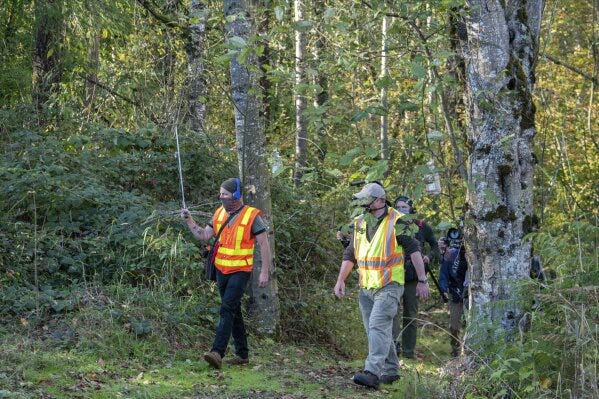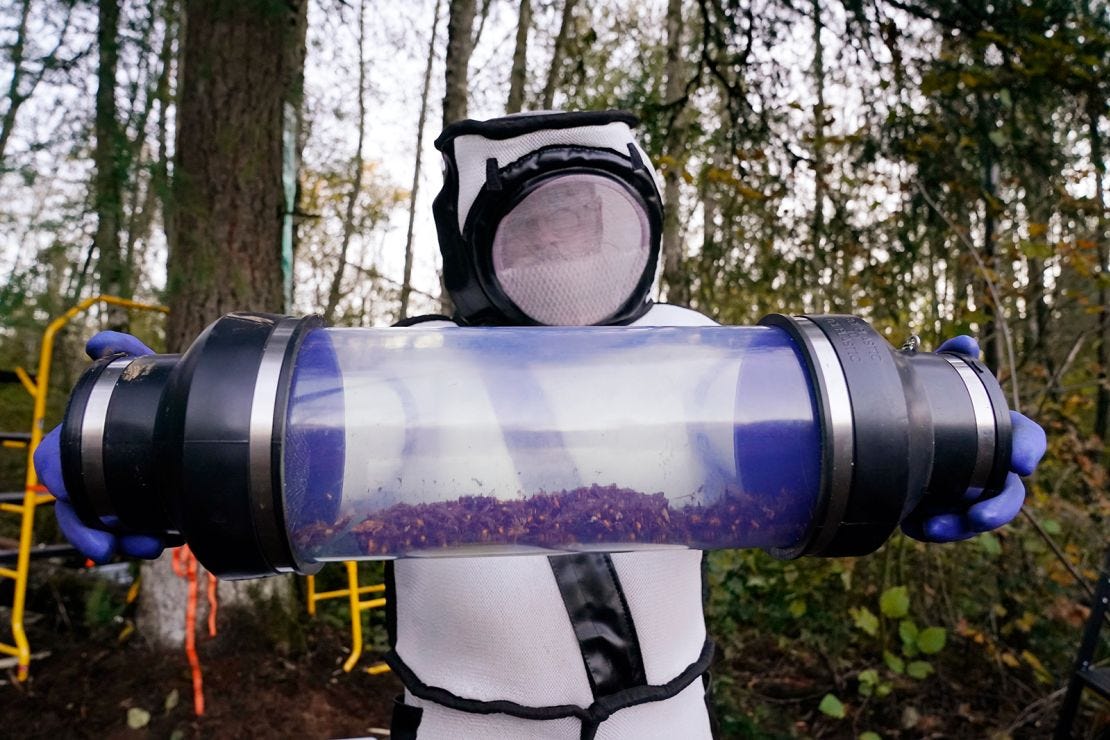Winning the Battle Against Murder Hornets is Good.
Murder is bad, even when the victims are bees
In a remarkable victory for nature and local ecologies, the northern giant hornet—known as the 'murder hornet'—has been vanquished. In late 2024, these invaders were officially declared eradicated from the United States, marking the culmination of an extraordinary scientific campaign that began with their first detection in Washington state in 2019. This isn't just rudimentary pest control; it's a demonstration of our capacity to identify threats, develop strategic responses, and execute solutions to protect vital ecosystems.
How did we do this?
Dental floss!
I’m serious. In this case, researchers employed an elegant combination of traditional and innovative techniques, which included the ingenious use of dental floss to attach radio tracking devices to captured hornets. With the hornets “tagged”, a critical location was discovered: a nest housed within an alder tree. Then came capture and eradication, at the crucial moment before multiple queens could emerge and establish new colonies.

It’s important to recognize that the murder hornets were not problematic for their potential killing of humans. No, these formidable insects, measuring up to two inches in length, posed an existential threat to North American honey bee populations. A small group of hornets could decimate an entire honey bee colony in mere hours! As we all should or do know honey bees serve as essential pollinators for many flowers, nuts and fauna.
The number of factors and disparate contributors in this eradication deserves mention.
Local residents formed surveillance networks responsible for maintaining traps and reporting sightings
Specially reinforced protective suits were imported from China to withstand the hornets' formidable stings
Scientists developed the extraction and containment processes to capture these nefarious pests.
Sven Spichiger, pest program manager of the Washington State Department of Agriculture, captured the historical significance of this achievement:
"As an entomologist—I've been doing this for over 25 years now, and it is a rare day when the humans actually get to win one against the insects."

While this triumph deserves celebration, it also serves as a model for addressing future ecological challenges. Washington state remains vigilant, maintaining monitoring systems and responding to potential sightings. This ongoing dedication reflects an understanding that environmental protection requires sustained commitment, even after initial success.
It’s rare that we will see the words eradication used in a Substack about good things, but it is well-merited in this case. Bees were saved, communities were rallied, murderous hornets dealt with.
That’s good.





Hooray!